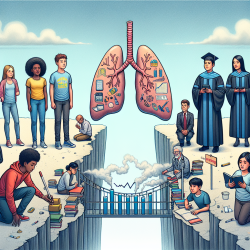The Power of Interdisciplinary Teams in Cancer Care
As a practitioner in the field of healthcare, you are likely aware of the complex needs of cancer patients and the challenges faced by healthcare professionals. The study titled Evaluation of the impact of interdisciplinarity in cancer care offers valuable insights into how interdisciplinary teams can enhance patient care and improve professional satisfaction.
Understanding Interdisciplinary Teams
Interdisciplinary teams consist of professionals from various disciplines working collaboratively to achieve a common goal. In the context of cancer care, these teams are designed to provide comprehensive, patient-centered care by integrating diverse expertise and perspectives.
Key Findings from the Research
The research conducted in Quebec evaluated the impact of interdisciplinary teams on both patients and healthcare professionals. The study utilized a quasi-experimental design with three comparison groups based on the intensity of interdisciplinarity: strong, moderate, and weak. Here are some of the key findings:
- Improved Patient Outcomes: Patients receiving care from high-intensity interdisciplinary teams reported better health care utilization, continuity of care, and responsiveness of cancer services.
- Enhanced Professional Well-being: Healthcare professionals in strong interdisciplinary teams experienced greater job satisfaction, perceived team effectiveness, and overall well-being.
- Effective Team Dynamics: The study highlighted the importance of team structure and processes, such as regular meetings, shared philosophy of care, and coordination mechanisms, in enhancing team effectiveness.
Implementing Interdisciplinary Teams in Your Practice
To harness the benefits of interdisciplinary teams, consider the following strategies:
- Foster a Collaborative Environment: Encourage open communication and collaboration among team members from different disciplines. Regular team meetings and shared decision-making can enhance team cohesion and effectiveness.
- Invest in Training and Development: Provide opportunities for team members to enhance their skills and knowledge through training programs and workshops. This can improve team dynamics and patient care.
- Emphasize Patient-Centered Care: Focus on the holistic needs of patients by integrating diverse perspectives and expertise. This approach can lead to improved patient outcomes and satisfaction.
Encouraging Further Research
While the study provides valuable insights, further research is needed to explore the long-term impact of interdisciplinary teams on patient care and professional development. Practitioners are encouraged to participate in research initiatives and contribute to the growing body of knowledge in this field.
To read the original research paper, please follow this link: Evaluation of the impact of interdisciplinarity in cancer care.










